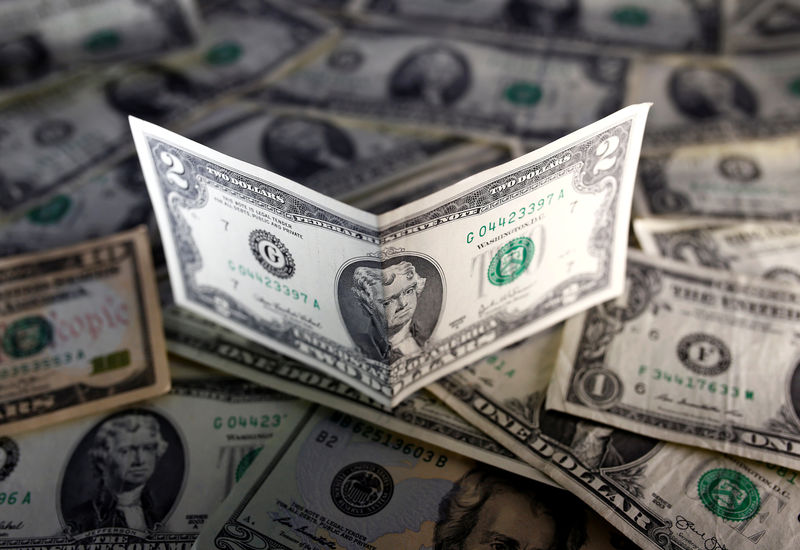Intel stock extends gains after report of possible U.S. government stake
Investing.com -- On Monday, UBS analysts provided guidance for U.K. investors holding US dollars, emphasizing the importance of reviewing exposure to the currency amid ongoing market volatility.
The global markets have been experiencing fluctuations since U.S. President Donald Trump returned to office, with significant impacts on various assets, including the U.S. dollar.
Recent volatility has been driven by concerns over U.S. economic policy, leading to a reduction in U.S. exposure and a subsequent outperformance of European stocks.
This has also contributed to a weaker U.S. dollar and increased yields on long-dated U.S. debt. The British pound has seen notable movements against the U.S. dollar, starting the year at approximately 1.25, dropping to near 1.20, and then rallying to around 1.35.
UBS notes that the U.S. dollar’s traditional role as a safe-haven currency is diminishing due to the increasing uncertainty originating from the U.S.. While the U.S. remains unmatched in terms of market size and liquidity, ongoing policy uncertainty and trade and budget deficits suggest potential further weakness in the U.S. dollar in the coming quarters.
UBS recommends that U.K. investors carefully assess their currency needs, especially if their USD holdings are used to cover expenses in sterling. Investors should consider strategies to avoid converting USD at unfavorable exchange rates, particularly if further dollar weakness occurs.
For those seeking better returns, UBS suggests exploring more cyclical currencies such as the Australian dollar, New Zealand dollar, Swedish krona, Norwegian krone, and British pound, while acknowledging their higher volatility.
Safe-haven options like the Swiss franc and Japanese yen are also mentioned.
Additionally, UBS highlights gold as a potential hedge against geopolitical volatility and inflation, despite its lack of yield.
